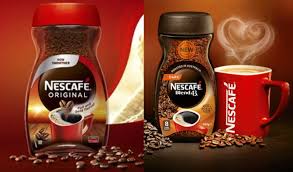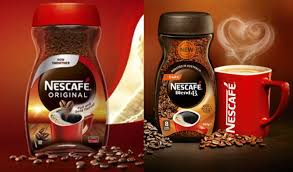
Generation Z’s relationship with coffee has undergone a profound transformation in recent years. No longer content with the early‑morning drip cup, today’s youngest adult consumers are embracing cold brews, creative customizations and “home café” experiences that blend social media flair with health‑oriented ingredients. As established beverage routines give way to new rituals, Nestlé is moving swiftly to reshape its iconic Nescafé brand and broader coffee portfolio to align with Gen Z’s tastes, habits and values.
Cold Coffee and Customization Fuel New Trends
A defining trait of Gen Z’s coffee consumption is its preference for chilled beverages. Cold brews, nitro coffees and iced lattes now account for a growing share of out‑of‑home coffee sales—a trend that shows no sign of ebbing. Surveys indicate that nearly half of Gen Z drinkers now reach for a cold coffee daily, with the vast majority adding dairy or non‑dairy creamers, flavored syrups and even mood‑boosting or gut‑health ingredients to their cups. This “little treat culture” has turned each purchase into a customizable experience, where texture, color and presentation matter as much as caffeine content.
In response, Nestlé has poured resources into cold‑coffee innovations under the Nescafé banner. Its Espresso Concentrate, a liquid base designed for instant blending into cold drinks, has been rolled out across key markets—including North America, Europe and Asia—after trial launches in major grocery chains. The concentrate allows consumers to “hack” their beverages at home or on the go, mixing the coffee with milk alternatives, sparkling water or even lemonade. Following the concentrate’s success, Nestlé introduced Ice Roast instant granules, engineered to dissolve quickly in cold temperatures, and has expanded its ready‑to‑drink (RTD) portfolio to include a spectrum of iced coffees in cans and bottles, featuring tropical, dessert‑inspired and low‑sugar variants.
At‑Home Café Culture and Digital Engagement
Beyond the shift to chilled drinks, Gen Z has embraced “home café” culture—transforming kitchens into miniature coffee shops complete with latte‑art tutorials, specialty syrups and curated playlists. Driven by rising coffee shop prices and social‑media enthusiasm, this DIY movement is powering strong growth in at‑home coffee equipment and ingredients. Young consumers are posting elaborate coffee setups, sharing budget‑friendly latte recipes, and hosting virtual coffee gatherings that rival traditional nightlife.
Recognizing this, Nestlé has bolstered its digital engagement and product ecosystem to support the home‑brewing trend. The company has enhanced its Nescafé app with personalized recipe suggestions, trend‑spotting features and community forums where Gen Z users can swap ideas and showcase their creations. In parallel, Nestlé’s R\&D teams have fine‑tuned soluble blends that deliver richer crema, foaming agents for barista‑style milk textures, and single‑serve “pods” compatible with popular home machines. Limited‑edition flavor drops—such as matcha‑espresso fusion and adaptogenic mushroom infusions—have been marketed through influencer partnerships, capitalizing on social channels that resonate with younger audiences.
Furthermore, Nestlé is piloting subscription models tailored to Gen Z’s penchant for convenience and discovery. Subscribers receive monthly delivery boxes containing newly launched instant coffees, cold‑brew kits and branded merchandise—often co‑created with digital creators. Early trials report high engagement rates, with users citing the excitement of unboxing and trying novel flavors as a key driver of loyalty.
Nestlé’s Strategic Innovations and Global Rollout
To match Gen Z’s diverse preferences and global outlook, Nestlé is supporting its product launches with a coordinated international expansion. In addition to North America and Europe, the company has introduced its cold‑coffee and at‑home innovations in markets such as India, Brazil, China and the Middle East & North Africa (MENA) region. These territories are experiencing rapid growth in coffee consumption, particularly among younger demographics whose coffee habits are still forming.
In markets with lower per‑capita coffee consumption, such as many parts of Asia and Africa, Nestlé is educating consumers through pop‑up “coffee lab” experiences and mobile sampling units. These activations allow Gen Z participants to taste cold coffees, experiment with custom recipes, and learn brewing techniques. By combining education with entertainment—complete with branded photo‑op stations—the company aims to embed Nescafé into emerging social rituals.
Sustainability has also become a cornerstone of Nestlé’s appeal to Gen Z, whose purchasing decisions are increasingly influenced by environmental and ethical considerations. Nestlé has already achieved its 2025 target of sourcing more than 30% of its coffee through regenerative agriculture, and it is rolling out blockchain‑enabled traceability tools that let consumers scan QR codes to discover the farm origins and sustainability practices behind each coffee offering. Recyclable packaging, carbon‑neutral delivery options and partnerships with youth‑focused environmental organizations further reinforce the brand’s commitment in the eyes of socially conscious young consumers.
In the competitive coffee landscape, personalization, convenience and purpose now form the triad of Gen Z’s expectations. Nestlé’s rapid innovation—spanning cold concentrates, app‑driven communities, subscription boxes and sustainable sourcing—demonstrates a concerted effort to meet those expectations. As younger drinkers continue to redefine what coffee means to them—valuing aesthetics, health, social engagement and ecological impact—Nestlé is reimagining its century‑old coffee empire to remain relevant in the world’s most dynamic consumer segment.
(Source:www.cnbc.com)
Cold Coffee and Customization Fuel New Trends
A defining trait of Gen Z’s coffee consumption is its preference for chilled beverages. Cold brews, nitro coffees and iced lattes now account for a growing share of out‑of‑home coffee sales—a trend that shows no sign of ebbing. Surveys indicate that nearly half of Gen Z drinkers now reach for a cold coffee daily, with the vast majority adding dairy or non‑dairy creamers, flavored syrups and even mood‑boosting or gut‑health ingredients to their cups. This “little treat culture” has turned each purchase into a customizable experience, where texture, color and presentation matter as much as caffeine content.
In response, Nestlé has poured resources into cold‑coffee innovations under the Nescafé banner. Its Espresso Concentrate, a liquid base designed for instant blending into cold drinks, has been rolled out across key markets—including North America, Europe and Asia—after trial launches in major grocery chains. The concentrate allows consumers to “hack” their beverages at home or on the go, mixing the coffee with milk alternatives, sparkling water or even lemonade. Following the concentrate’s success, Nestlé introduced Ice Roast instant granules, engineered to dissolve quickly in cold temperatures, and has expanded its ready‑to‑drink (RTD) portfolio to include a spectrum of iced coffees in cans and bottles, featuring tropical, dessert‑inspired and low‑sugar variants.
At‑Home Café Culture and Digital Engagement
Beyond the shift to chilled drinks, Gen Z has embraced “home café” culture—transforming kitchens into miniature coffee shops complete with latte‑art tutorials, specialty syrups and curated playlists. Driven by rising coffee shop prices and social‑media enthusiasm, this DIY movement is powering strong growth in at‑home coffee equipment and ingredients. Young consumers are posting elaborate coffee setups, sharing budget‑friendly latte recipes, and hosting virtual coffee gatherings that rival traditional nightlife.
Recognizing this, Nestlé has bolstered its digital engagement and product ecosystem to support the home‑brewing trend. The company has enhanced its Nescafé app with personalized recipe suggestions, trend‑spotting features and community forums where Gen Z users can swap ideas and showcase their creations. In parallel, Nestlé’s R\&D teams have fine‑tuned soluble blends that deliver richer crema, foaming agents for barista‑style milk textures, and single‑serve “pods” compatible with popular home machines. Limited‑edition flavor drops—such as matcha‑espresso fusion and adaptogenic mushroom infusions—have been marketed through influencer partnerships, capitalizing on social channels that resonate with younger audiences.
Furthermore, Nestlé is piloting subscription models tailored to Gen Z’s penchant for convenience and discovery. Subscribers receive monthly delivery boxes containing newly launched instant coffees, cold‑brew kits and branded merchandise—often co‑created with digital creators. Early trials report high engagement rates, with users citing the excitement of unboxing and trying novel flavors as a key driver of loyalty.
Nestlé’s Strategic Innovations and Global Rollout
To match Gen Z’s diverse preferences and global outlook, Nestlé is supporting its product launches with a coordinated international expansion. In addition to North America and Europe, the company has introduced its cold‑coffee and at‑home innovations in markets such as India, Brazil, China and the Middle East & North Africa (MENA) region. These territories are experiencing rapid growth in coffee consumption, particularly among younger demographics whose coffee habits are still forming.
In markets with lower per‑capita coffee consumption, such as many parts of Asia and Africa, Nestlé is educating consumers through pop‑up “coffee lab” experiences and mobile sampling units. These activations allow Gen Z participants to taste cold coffees, experiment with custom recipes, and learn brewing techniques. By combining education with entertainment—complete with branded photo‑op stations—the company aims to embed Nescafé into emerging social rituals.
Sustainability has also become a cornerstone of Nestlé’s appeal to Gen Z, whose purchasing decisions are increasingly influenced by environmental and ethical considerations. Nestlé has already achieved its 2025 target of sourcing more than 30% of its coffee through regenerative agriculture, and it is rolling out blockchain‑enabled traceability tools that let consumers scan QR codes to discover the farm origins and sustainability practices behind each coffee offering. Recyclable packaging, carbon‑neutral delivery options and partnerships with youth‑focused environmental organizations further reinforce the brand’s commitment in the eyes of socially conscious young consumers.
In the competitive coffee landscape, personalization, convenience and purpose now form the triad of Gen Z’s expectations. Nestlé’s rapid innovation—spanning cold concentrates, app‑driven communities, subscription boxes and sustainable sourcing—demonstrates a concerted effort to meet those expectations. As younger drinkers continue to redefine what coffee means to them—valuing aesthetics, health, social engagement and ecological impact—Nestlé is reimagining its century‑old coffee empire to remain relevant in the world’s most dynamic consumer segment.
(Source:www.cnbc.com)














